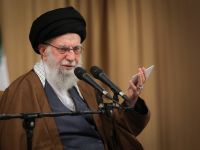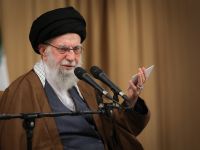General Foreign investment in capital, technology or expertise is more than welcome in the UAE. Generally, any locally incorporated company must be at least 51 percent owned by UAE nationals, but the apportionment and distribution of profits is not similarly constrained.
Free Trade Zones
Dubai, which has far less oil wealth than Abu-Dhabi, has undertaken a major promotion campaign to attract more foreign investment and tourism. Its vast Jebel Ali Free Trade Zone now houses more than 950 international operations, most of which engage in the distribution or light to medium manufacturing of products for domestic consumption and export. The Zone is built around the Dubai Port Authority's Jebel Ali Terminal and enables customers to take full advantage of the port's ISO-certified container and general cargo operations. A Free Zone Authority is assisting in administrative proceedings.
The principal advantage of free trade zones in the UAE, and especially Jebel Ali, is that companies locating in a free zone may be 100 percent foreign owned. Registration procedures tend to be relatively simple. Furthermore, since the nominal customs duty is only 4 percent and as much as 3 percent of it is often rebated, the entire country is a virtual Free Trade Zone.
Dubai Law No. 2 of April 3, 1993, is designed to treat equally goods manufactured by firms which are at least 51 percent owned by UAE or GCC nationals and which are licensed by the Ministry of Finance as UAE products, regardless of whether manufactured inside or outside free trade zones. The net effect of the law will be to exempt products produced in free trade zones from UAE customs duty. Over the long term, it is hoped that all GCC countries will cease to levy import duties on free zone products.
Under Dubai Law No. 9 of 1992, a company may set up a separate legal entity, referred to as a free zone establishment (FZE). The entity needs only one shareholder, whose liability may be limited to the amount of share capital paid in to the FZE (minimum share capital DH 1 million). No memorandum or articles of incorporation will be necessary. The Jebel Ali Free Zone Authority will provide to every applicant upon request the implementation regulations for foreign investors in the zone. The Zone Authority also maintains a FZE register.
The Jebel Ali Free Zone provides an opportunity to businesses to base their manufacturing, warehousing and trading operations in the Free Zone without the normal requirements attendant to the conduct of business in the Arab Gulf States. Businesses in Jebel Ali are exempted from the requirement of local ownership, payment of taxes and duties and are guarantied the freedom to transfer capital, profits and salaries. The Jebel Ali Free Zone Authority allows foreign companies to establish branch operations in Jebel Ali without any requirements of local sponsorship or agency. It is now also possible to incorporate wholly-owned subsidiaries in the Jebel Ali Free Zone. Gulf nationals may also establish operations which are not incorporated.
Recently, new Free Trade Zones similar in structure to the Jebel Ali Zone were opened at Dubai International Airport and in Sharjah International Airport.
Trade Agreements
The UAE is a member of the GCC, and as such, is subject to the GCC agreements regarding trade. These agreements are described in the section on Trade Agreements in the chapter on Bahrain.
The UAE is a signatory to the General Agreement on Tariffs and Trade (GATT).
Customs
Tariffs reflect the cost of the imported goods as indicated on the supplier's or manufacturer's invoice. In accordance with GCC initiatives, new customs duties were announced August 1, 1994, which provide a consistent duty of 4 percent on the CIF value of imports throughout the UAE.
It is expected that many items imported by the government, including personal effects, goods in transit, foodstuffs and medicines will be duty-free.
Real Estate Investment
Until recently, in foreign ownership of land was not restricted in practice throughout the UAE with the exception of Abu-Dhabi and Dubai, where even transfers between Abu-Dhabi citizens are subject to government approval. A proposed federal real estate law, however, would prohibit foreigners and foreign companies (except those from other GCC states) to hold property, granting a transitional period to those who already own property. Enforcement, however, will likely take into consideration individual cases. Since land is available at nominal rents under the Organization of Industrial Affairs Act, the proposed law is generally believed to have hardly any adverse effect on foreign investment.
Building permits are granted only to construction engineers, and any construction without the appropriate permit from the local municipality will be illegal.
One of the most obvious ways to exploit land is to grant leases, particularly in the UAE, where the majority of the residents are expatriates, and, therefore, are obliged to rent. Until 1994, Sharjah was the only Emirate to have enacted a landlord and tenant law of general applicability. Sharjah's Landlord and Tenant Law of 1977, as amended in 1986, applies to almost all kind of leases. It requires leases to be registered with the municipal authorities.
Legislation regarding renting of real property in Abu-Dhabi, which was enacted in 1994, is more comprehensive than the Sharjah law, and covers all lease contracts. It requires that leases be registered with the relevant municipality. It further requires that lease agreements be in writing. Nonetheless the law also provides that the terms of a lease, though in writing may be established by all means of proof including oral or other extrinsic evidence not incorporated in the written lease.
Collaterization of Loans
Governed by the Federal Commercial Transactions Law No.18 of 1993, various types of securities are available to secure loans and facilities granted by banks and financial institutions. These include a mortgage on land, a pledge on movable assets, a pledge on shares in a joint stock or limited liability company as well as a pledge on the commercial business on the whole (comprising material and intangible assets for the practice of commercial business). The latter two, which are particularly attractive to foreign investors not owning land, do not bar those pledging from managing their pledged business in the ordinary course of business.
Public Sector Procurement
In the UAE, government projects are generally put out to tender. The required qualifications, specializations and other terms and conditions for participation vary according to the project and the authority concerned. Certain tenders are offered internationally, but where local tenders are concerned, only those companies licensed and registered with the department concerned are eligible to bid. In order to qualify to participate, one or more of the following may apply:
- The tenderer shall be a firm registered in the UAE;
- A foreign party may only participate if it has a UAE agent with the necessary documents;
- The tenderer should hold a valid license from the Economic Department;
- The tenderer must be a member of the Dubai Chamber of Commerce.
Abu-Dhabi has its own detailed rules and requirements for contractors who wish to be permitted for tender, imposing special registration requirements and placing limits on the commission the local agent involved is permitted to receive.
Environmental Law Over the past few years, various municipalities in the UAE have developed a relatively large body of environmental regulations based on local orders, many of which contain strong enforcement provisions. Among the Emirates, Dubai has the most developed system of environmental regulations, requiring permits from the local municipality for activities relating to water usage (sewage/drainage, liquid waste) and to air pollution. The environmental standards imposed are closely monitored by the local municipality, which has the power to clean up at the polluter's expense, to enforce discontinuance of drainage or to cancel existing permits. Furthermore, the operator of a facility is required to perform monthly tests and to send the results to the municipality.
On a federal level, the UAE created in 1993 the Federal Environmental Authority (FEA), which has since prepared a draft of environmental protection legislation for a comprehensive federal law that is supposed to bring new cohesiveness to the current fragmented system of environmental protection. In addition to provisions regarding the general protection of the environment, the proposed law contains specific chapters on water, soil and air pollution, noise pollution, the protection and preservation of wildlife, protected areas, environmental disasters and the handling of hazardous materials and waste. It also calls for eliminating pollution from sources outside the UAE and for full compliance with UAE treaty obligations. Companies will be required to comply with its provisions within two years from the date of publication. The executive regulations are to be published six month after enactment of the draft law. Entities formed after the enactment will have to comply with its provisions in order to obtain a license; the licensing authorities will require environmental impact studies from applicants. Furthermore, environmental protection will generally have to be considered in all government decisions.
General enforcement of the law will be undertaken by the Ministry of Justice. Violators of the proposed provisions will have to compensate individual victims of environmental damage. It is not clear, however, whether the law allows a private cause of action for the victims or whether the Ministry will administer such claims. On the other hand, the law does state expressly that environment protection societies may institute civil litigation against an offender.
The UAE recently joined the United Nations Framework Convention on Climate Control and is a party to various international treaties regarding environmental protection, including the 1969 Brussels Convention Relating to Intervention on the High Seas in Case of Oil Pollution Casualties and its 1973 Protocol; as well as the same convention relating to Civil Liability for Oil Pollution Damage; the 1971 Convention on the Establishment of an International Fund for Compensation in Oil Pollution Damage; the 1972 London Convention on the Prevention of Marine Pollution by Dumping from Ships and Aircraft (as amended); the Convention on International Trade in Endangered Species of Wild Fauna and Flora; Annex 16 on Environmental Protection of the 1944 Chicago Convention on International Civil Aviation, the Kuwait Regional Convention for Cooperation on the Protection of the Marine Environment from Pollution; the 1985 Vienna Convention for Protection of the Ozone Layer with its 1987 Montreal Protocol on Substances that Deplete the Ozone Layer; the 1986 IAEA Conventions on Early Notification of a Nuclear Accident and on Assistance in the Case of a Nuclear Accident or Radiological Emergency.
© 2000 Mena Report (www.menareport.com)








